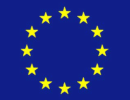Bankwatch monitors international financial institutions. They are public institutions that are the main agents in a global financial architecture. As public actors, they should be accountable to the public and act in its common good. However, their track record is far from perfect.
While this is true for a number of IFIs, we focus on the following institutions for they are of specific relevance in central and eastern Europe as well as Central Asia and the Caucasus:
European Bank for Reconstruction and Development (EBRD)

Established to promote transition to market-oriented economies in the countries of central and eastern Europe and Central Asia, the EBRD’s lending often fails to benefit the people in these countries and regularly prioritises carbon-intensive and environmentally damaging development.
European Investment Bank (EIB)

As the world’s biggest public lending institution, the EIB plays a crucial role in development finance – both within and outside the EU. But it frequently neglects environmental and social aspects in its investments, has a strong aversion to share information with the public and its staff is too small to monitor projects effectively.
European Structural and Cohesion Funds (EU funds)

EU funds are the key financial instrument to shape the EU’s regional development, but narrowly defined funding priorities and the disregard of social and environmental impacts often inhibit real benefits for the quality of affected peoples’ lives and socially, economically and environmentally sustainable development.
